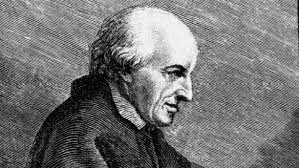Introduction:
Welcome, music enthusiasts! Today, we embark on a journey through the life and achievements of one of the most underrated Baroque composers, Johann Friedrich Fasch. Although often overshadowed by his contemporaries, such as Johann Sebastian Bach and Georg Philipp Telemann, Fasch’s musical brilliance and contributions to the world of music deserve our attention and admiration. Join me as we delve into the biography of this remarkable composer and explore his lasting legacy.
Early Life and Education:
Johann Friedrich Fasch was born on April 15, 1688, in Buttelstedt, a small town in present-day Germany. His early exposure to music came from his father, who served as a schoolteacher and a Kantor. Recognizing his son’s musical talent, Fasch’s father provided him with a solid musical education. Young Fasch quickly mastered the violin and keyboard instruments, and his remarkable progress caught the attention of local musicians and composers.
Musical Journey and Career:
In pursuit of further musical education, Fasch left his hometown and studied at the famous Thomasschule in Leipzig. There, he had the privilege of witnessing the genius of Johann Kuhnau, who served as the Thomaskantor and inspired Fasch with his remarkable compositions. Fasch’s time in Leipzig laid the foundation for his future endeavors and molded him into a skilled composer and musician.
Upon completing his studies, Fasch secured a position as a violinist in the renowned court orchestra of Dresden. It was during this time that he expanded his musical horizons and explored various genres and styles. Fasch’s compositions began to gain recognition, and his reputation as a talented composer spread throughout the region.
In 1722, Fasch received a significant appointment as Kapellmeister in the court of Zerbst, where he remained for over three decades. As Kapellmeister, Fasch composed a vast body of work, including symphonies, concertos, chamber music, and choral works. His music showcased a unique blend of German and Italian styles, characterized by lively melodies, elegant harmonies, and intricate counterpoint.
Musical Style and Contributions:
Fasch’s musical style reflected the transitional period between the late Baroque and early Classical era. His compositions demonstrated a distinct sense of balance and clarity, incorporating both contrapuntal techniques and elements of the emerging galant style. Fasch’s music possessed a remarkable freshness and inventiveness, captivating audiences and fellow musicians alike.
One of Fasch’s notable contributions was his role in popularizing the orchestral suite form. He expanded the traditional suite structure by adding innovative movements, such as fugues and concertos. This experimentation showcased his pioneering spirit and contributed to the evolution of the genre.
Legacy and Influence:
Despite Fasch’s significant contributions to music, his works gradually fell into obscurity after his death in 1758. It was only in recent years that his compositions began to receive the recognition they deserved. Musicologists and performers rediscovered Fasch’s oeuvre, shedding light on his exceptional talent and artistry.
Today, Fasch’s music is performed and celebrated in concert halls worldwide, allowing modern audiences to experience the brilliance of his compositions. His influence can be heard in the works of his renowned contemporaries, such as Bach and Telemann, who were inspired by Fasch’s innovative approach to music.
Conclusion:
Johann Friedrich Fasch may have been a hidden gem in the annals of music history, but his genius and contributions are now being unveiled and appreciated by a new generation of musicians and music enthusiasts. From his humble beginnings to his influential career, Fasch’s compositions continue to enrich our lives and remind us of the vast musical talent that existed during the Baroque period. Let us celebrate Johann Friedrich Fasch, a composer whose music is an enduring testament to his genius.

Comments are closed